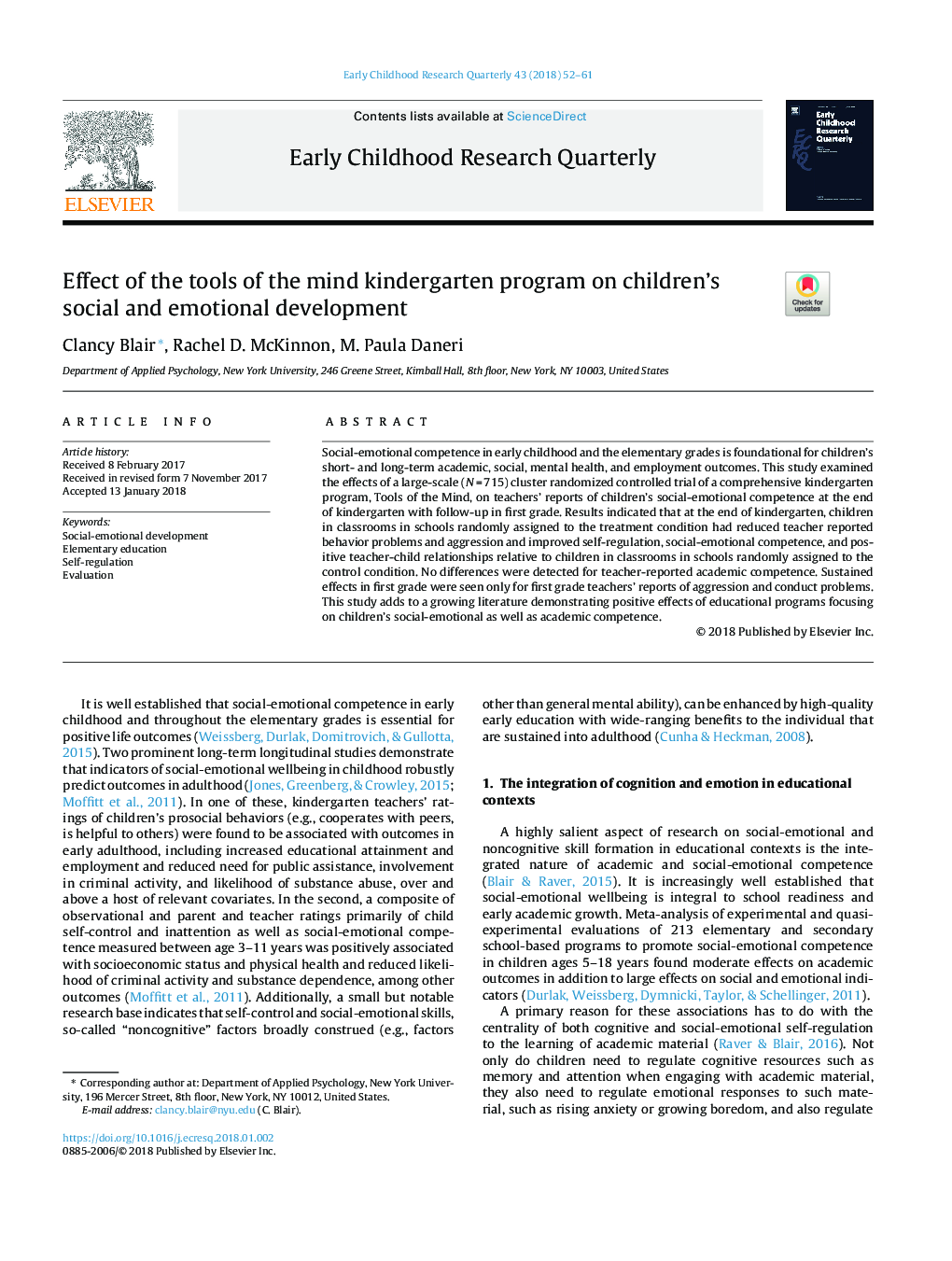| Article ID | Journal | Published Year | Pages | File Type |
|---|---|---|---|---|
| 6840667 | Early Childhood Research Quarterly | 2018 | 10 Pages |
Abstract
Social-emotional competence in early childhood and the elementary grades is foundational for children's short- and long-term academic, social, mental health, and employment outcomes. This study examined the effects of a large-scale (NÂ =Â 715) cluster randomized controlled trial of a comprehensive kindergarten program, Tools of the Mind, on teachers' reports of children's social-emotional competence at the end of kindergarten with follow-up in first grade. Results indicated that at the end of kindergarten, children in classrooms in schools randomly assigned to the treatment condition had reduced teacher reported behavior problems and aggression and improved self-regulation, social-emotional competence, and positive teacher-child relationships relative to children in classrooms in schools randomly assigned to the control condition. No differences were detected for teacher-reported academic competence. Sustained effects in first grade were seen only for first grade teachers' reports of aggression and conduct problems. This study adds to a growing literature demonstrating positive effects of educational programs focusing on children's social-emotional as well as academic competence.
Related Topics
Social Sciences and Humanities
Psychology
Applied Psychology
Authors
Clancy Blair, Rachel D. McKinnon, M. Paula Daneri,
